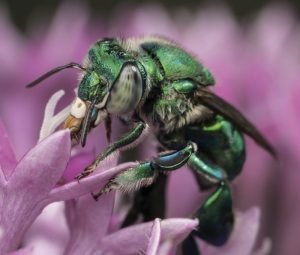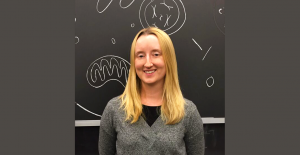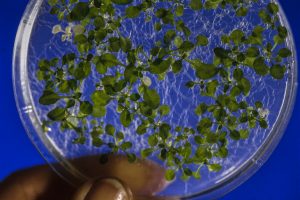Enter your address to receive notifications about new posts to your email.
Featured
-
Featured
Behind the Cover: Genetic ancestry in Colombia
Over three centuries, as many as a million enslaved people were shipped to the Colombian port of Cartagena. From this hub of the slave trade, European colonists took Africans to labor in many places across the Americas, including the gold mines of the Chocó region. Today, people from Chocó often proudly identify as Afro-Colombian, while…
-
Featured
Career Development Symposium Report: Ethical and Inspiring Mentorship in STEM
Guest post by Pinar Gurel. GSA is currently accepting proposals from students and postdocs for the next round of Career Development Symposia. Gain leadership experience and serve the early career scientist community! Among the many roles that scientists play, mentoring younger scientists is one that researchers are rarely trained for. In the current STEM research environment,…
-
Featured
Welcome to the new members of the GSA Board of Directors!
We are pleased to announce the election of four new leaders to the GSA Board of Directors: 2018 Vice-President / 2019 President Terry Magnuson Sarah Graham Kenan Professor, Department of Genetics, University of North Carolina at Chapel Hill and Vice Chancellor for Research, UNC Chapel Hill Terry Magnuson investigates the role of genes in unique epigenetic…
-
Featured
A career panel changed Chris Cherry’s path from fruit fly geneticist to patent lawyer
Chris Cherry, a patent lawyer at Buchanan Ingersoll & Rooney PC, talks about the need for biology PhDs in patent law and how he learned that leaving research does not mean the end of being involved in cutting-edge science. In the Decoding Life series, we talk to geneticists with diverse career paths, tracing the many directions possible after…
-
Featured
How the fruit fly’s daily rhythms led to big discoveries—and a Nobel Prize
The unassuming fruit fly has paved the way for another big scientific win: on October 2nd, the Nobel Assembly awarded the 2017 Nobel Prize in Physiology or Medicine to Jeffrey C. Hall, Michael Rosbash, and Michael W. Young for their discoveries of the molecular mechanisms behind circadian rhythms. These biologists have spent their careers studying…
-
Featured
Aashiq Mirza on the importance of being collaborative for a successful career in academic research
Interview with Aashiq Mirza, postdoctoral fellow at Weill Cornell Medicine, talks about acquiring interdisciplinary skills and practical habits for success during the early stages of a research career. In the Decoding Life series, we talk to geneticists with diverse career paths, tracing the many directions possible after research training. This series is brought to you by the GSA Early Career…
-
Featured
An extra chromosome that does double duty
Inheriting an extra chromosome can sometimes be disastrous, but in the September issue of G3, Linder et al. investigate a chromosome duplication that helps yeast survive harsh conditions. Yeast with an extra copy of chromosome IV better tolerate hydrogen peroxide exposure, largely thanks to an extra copy of a gene that detoxifies the chemical. This…
-
Featured
Behind the cover: orchid bee genome
A green, iridescent bee perches on a pink flower, extending its proboscis to reach the sweet nectar inside. He’s not just after a meal—he’s also collecting fragrant substances to store inside his hollow rear legs. Later, he’ll buzz his wings to release the aroma with the hope of attracting a mate. The cover of the…
-
Featured
Mary Ellen Wiltrout on switching from lab work to creating innovative science education programs
Interview with Mary Ellen Wiltrout, MITx Biology Digital Learning Scientist and Curriculum Development Specialist, highlights the importance of sharing career interests, maintaining connections, and acquiring specific skillsets for a successful career in science education. In the Decoding Life series, we talk to geneticists with diverse career paths, tracing the many directions possible after research training. This series…
-
Featured
A gene linked to human obesity also controls fat deposition in plants
There’s no such thing as an obese plant. But that doesn’t mean plants can’t teach us something about fat. In the September issue of GENETICS, Ducos et al. show that a protein that controls fat accumulation in humans has a similar function in Arabidopsis. They also find that the human and plant proteins may be…
-
Featured
Cause of neurological disorder in Belgian Shepherds discovered
Malinois dogs are working animals known for being used by the Secret Service to guard the White House. These dogs, a subtype of the Belgian Shepherd breed, are robust, with an average life expectancy of 10-12 years. But some puppies are afflicted by a genetic condition called spongy degeneration with cerebellar ataxia (SDCA). A puppy…



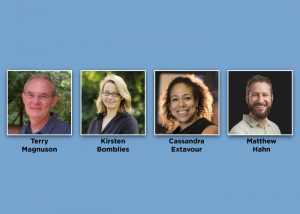
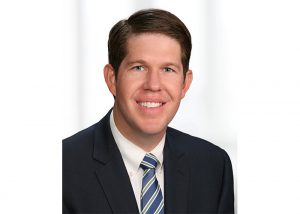

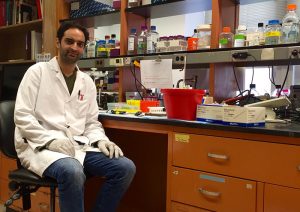
![Photo by publicdomainpictures.net. [CC0]](https://s36063.pcdn.co/wp-content/uploads/2017/09/red-doubledecker_770x-300x199.jpg)
